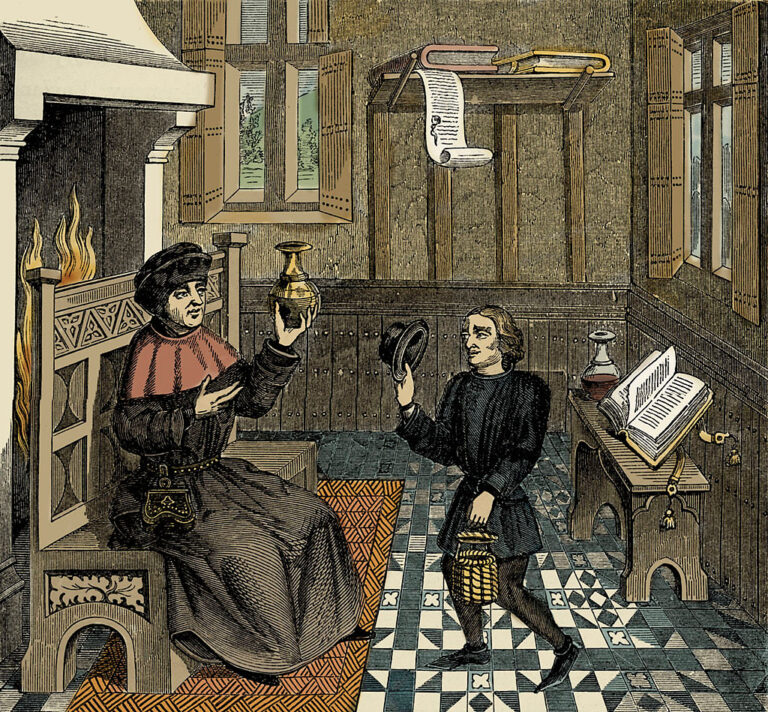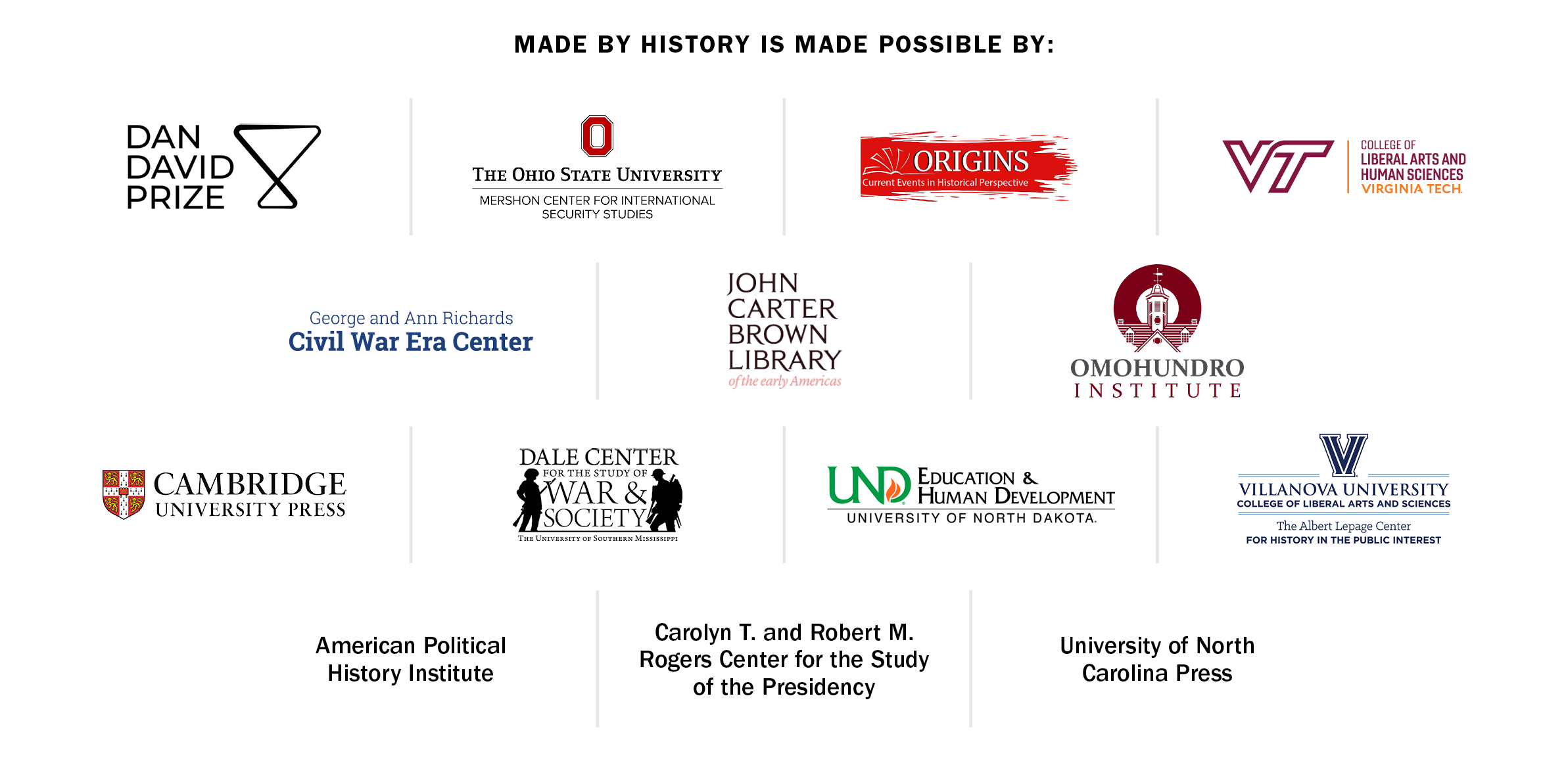
In latest years, the hunt for everlasting life has turn into huge enterprise, as a rising variety of biotechnology start-ups race to develop a drug which may forestall growing old. A lot of them are funded by Silicon Valley billionaires who hope to be the primary people to dwell without end, and who’ve personally dedicated to strict well being regimes within the hope of reaching this aim.
Whereas the expertise could also be new, the hunt for longevity shouldn’t be. Certainly, it was additionally an obsession of elite medieval Europeans. Then and now, the hunt for immortality is predicated on optimizing the physique, utilizing way of life modifications and extra outlandish methods, in an try and extend life past its normal span. And but, the lesson, then and now, appears to be that the hunt for immortality is much less about advancing scientific information for the great of all mankind, and extra about harnessing that information for the good thing about probably the most privileged members of society.
Learn Extra: Why People Are Uniquely Afraid to Develop Previous
Though plague and different infectious illnesses introduced excessive demise charges in medieval Europe, those that reached maturity had an affordable likelihood of surviving into their seventh or eighth decade; in some early fifteenth century Italian cities, round 15% of the inhabitants was over 60. Identical to us, medieval individuals needed to dwell lengthy, wholesome lives and hoped to emulate long-lived kin. The 14th-century Italian poet Petrarch’s grandfather supposedly lived to be 104, whereas the Florentine politician Donato Velluti (1313-70) claimed that his ancestor Bonaccorso di Pietro (d. 1296) reached 120. In his last years, Velluti described him as blind and really stiff, however nonetheless energetic and sharp-minded.
Certainly, medieval individuals believed that people had the capability to dwell for hundreds of years, simply as Biblical figures resembling Noah and Methuselah did. This conviction fueled quite a few makes an attempt to work out how they may accomplish that. Writing round 1460, the Italian doctor Michele Savonarola complained that, whereas the ancients thrived on acorns and chestnuts, the gluttony of recent individuals made them weak and susceptible to illness. Intercourse was additionally an issue: the French rabbi David Kimhi (1160-1235) steered that individuals in Genesis loved lengthy lives as a result of they weren’t slaves to lechery.
Fashionable longevity gurus sometimes provide their followers detailed directions on tips on how to dwell their lives, and medieval individuals had been equally satisfied of the advantages of micromanaging one’s every day regime. Prevention was on the coronary heart of medieval medical concept: it was broadly believed that managing the six non-naturals (air and atmosphere, food and drinks, excretion, sleeping and waking, movement and relaxation, and the passions of the soul) would assist a person to stay wholesome.
Medieval medical specialists confused that such an method turned more and more vital later in life, as a result of as an individual aged, their physique cooled and dried—and demise occurred when all of their warmth and moisture was used up. Few individuals believed that it was potential to cease this taking place, however there was loads of dialogue about slowing the method down.
Regimens resembling Gabriele Zerbi’s Gerontocomia and Marsilio Ficino’s On a Lengthy Life (each printed in 1489) included detailed, medically-informed recommendation on tips on how to extend one’s life. A few of their recommendations might sound ridiculous to fashionable readers. Zerbi, as an example, warned his readers to keep away from each sneezing and intercourse, which dry out the physique, in addition to slicing fingernails underneath sure astrological mixtures.
Learn extra: The Man Who Thinks He Can Reside Ceaselessly
However a lot of their recommendation has continued. Medieval medical doctors instructed their sufferers to train, get sufficient sleep, care for one’s psychological well being, and keep away from extreme alcohol consumption. Above all, it was vital to eat a nutritious diet, a topic which is roofed in exhaustive element in each medieval and fashionable regimens. As well as, medieval individuals had been intrigued by the chances of fasting. The aged Petrarch, for instance, determined to quick as a result of most of the Desert Fathers (the early Christian hermits whose ascetic way of life proved the template for medieval monasticism) had lived to be over 100. The Italian priest-physician Marsilio Ficino really useful consuming simply two small meals a day, not more than 9 hours aside. He additionally suggested in opposition to consuming an excessive amount of meat, inexperienced fruits, and greens.
Past food plan and way of life decisions, medieval longevity specialists additionally believed within the rejuvenating potential of younger blood. Marsilio Ficino steered that the aged could possibly be reinvigorated with an infusion of youthful bodily fluids, which would offer much-needed warmth and moisture. This would possibly contain ingesting the milk of a “wholesome, stunning, cheerful and temperate” lady, or sucking blood from a “prepared, wholesome, glad and temperate” youth by way of a small incision in his left arm. Barely much less grotesque methods included rubbing contemporary pig’s blood onto the abdomen, or hugging “a woman who’s near her menstruation” as one slept.
More and more, nevertheless, the last word ingredient for the medieval well being freak was gold—a superbly composed and nearly indestructible ingredient which might assist the human physique to exist in a state of good well being for a few years. In accordance with the papal doctor Arnold of Villanova (d. 1311), many clerics sucked gold nuggets or drank potable gold with their meals. Assured that such practices would protect their well being and extend their lives, they “take into account[ed] gold as the best secret they ever knew or possessed.” Three centuries later, Renaissance popes had been nonetheless paying their physicians to make gold-based elixirs to permit them to dwell to 120.

Whereas some features of a wholesome way of life are fairly broadly accessible, such expensive prophylactic measures had been solely out there to the wealthiest members of society. Whereas Marsilio Ficino brazenly declared that On a Lengthy Life was written just for “prudent and temperate individuals of refined intelligence who will profit mankind,” fashionable longevity specialists typically insist that their findings will assist everybody. However it’s arduous to disregard the fact that the majority fashionable methods for the prolongation of life are, like their medieval equivalents, out there solely to those that have ample provides of each money and time.
And if the Center Ages increase vital questions in regards to the moral implications of longevity science, additionally they provide cautionary tales about its limits. Being on the forefront of medical endeavor brings rewards but additionally dangers, and among the medieval methods may very well have brought on well being issues. The identical could possibly be true of recent longevity methods.
Neither is there any assure that you’ll outwit destiny, which appears to have a humorousness. Pope John XXII (d. 1277) repeatedly and really publicly claimed that he knew tips on how to extend his life by a few years, solely to die when a ceiling collapsed on him. Gabriele Zerbi additionally met an premature finish, murdered by the disgruntled household of a affected person. Within the Center Ages as at the moment, medical information would possibly prolong your life—however provided that you had been possessed of each wealth and good luck.
Katherine Harvey is an Honorary Analysis Fellow at Birkbeck, College of London. She is the writer of The Fires of Lust: Intercourse within the Center Ages (Reaktion, 2021), and is at the moment engaged on a e-book about medieval approaches to wholesome dwelling. Made by Historical past takes readers past the headlines with articles written and edited by skilled historians. Study extra about Made by Historical past at TIME right here.